Trending topics: Israel and Jewish identity
Five new books exploring the identity of Israel and what it means to be Jewish
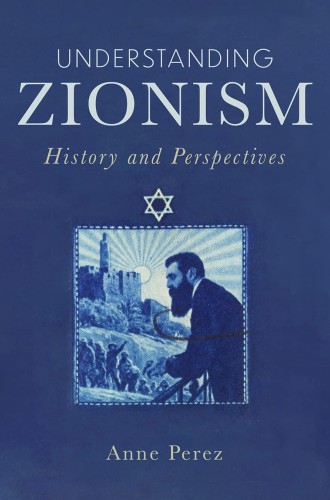
Understanding Zionism
History and Perspectives
Understanding Zionism: History and Perspectives
By Anne Perez
Fortress
What exactly does it mean to identify oneself as a Zionist or to call someone else one? It’s a more complicated question than I imagined. Anne Perez, a historian of modern Jewish and Israeli history, believes Christians are obligated to have basic familiarity with the long history and multiple perspectives of the Zionist movement, especially because Christian antisemitism contributed to its formation. Her accessible primer to this enormously complex topic, from its foundations to its possible future directions, maintains balanced commentary while offering valuable historical context. I came away with a clearer understanding of the multiple streams of Zionism and its opposition—inside and outside of Judaism—and a working knowledge of key historical figures, concepts, and events, all of which prepared me to read more deeply on the subject. This would be a great choice for a church reading group or a book club. I was glad I started here before diving into more specialized books on the topic.
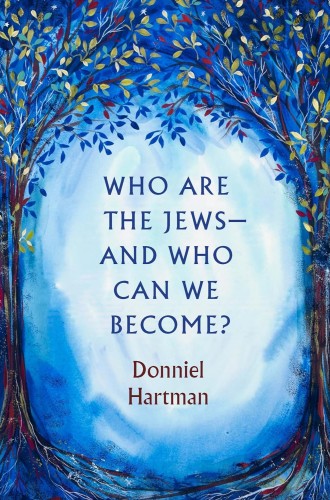
Who Are the Jews—and Who Can We Become?
Who Are the Jews—and Who Can We Become?
By Donniel Hartman
University of Nebraska Press
Donniel Hartman suggests a way forward for contemporary Jews by looking back to the foundational stories of Judaism. In the Genesis story, the Modern Orthodox rabbi explains, Jews are Jews by inheritance, not belief. In the Exodus story, Jewishness is aspirational, based on a choice to follow the law—the whole of which is to love thy neighbor as thyself. Throughout history, these Genesis and Exodus narratives have intertwined to constitute “the warp and woof of Jewish identity,” but when one is emphasized more than the other, that collective identity becomes distorted and starts to unravel.
In the second half of the book, Hartman applies this Genesis-Exodus metanarrative to the challenges facing contemporary Jews in Israel and the diaspora. Genesis Zionism, he says, is grounded in the Jewish right to a Jewish home in the Jewish homeland. But Exodus Zionism “teaches that it will not be a Jewish home as long as the Palestinians do not have their own home as well.” As a liberal Zionist, Hartman emphasizes that the Exodus covenant requires that Jews continue to seek peace as a concrete objective even when it does not seem possible: “the challenge of Exodus is to regroup and try again. And again. And again.” In the 21st century, he asks, which story will Jews choose to tell about themselves?
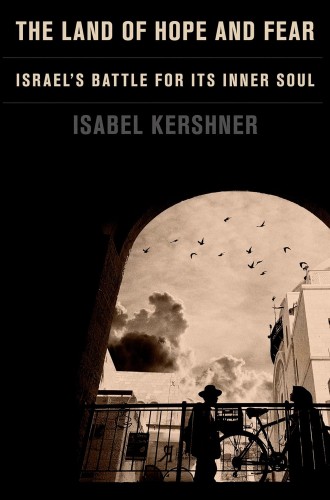
The Land of Hope and Fear
Israel’s Battle for Its Inner Soul
The Land of Hope and Fear: Israel’s Battle for Its Inner Soul
By Isabel Kershner
Knopf
This collection of meticulously reported stories of life in Israel by Isabel Kershner, a New York Times correspondent in Jerusalem, is exquisite. Kershner immerses herself in the lives and conflicts of people who live side by side and across great ideological divides. Her depth of knowledge of the politics that have shaped their lives is apparent in her analysis, but she doesn’t condemn or praise. Each essay stands alone as a compelling journalistic profile, but together they offer a kaleidoscopic perspective of the ongoing conflict and its human costs. We begin to detect how deeply interconnected these stories are and how difficult it would be to disentangle them. And yet Kershner manages to convey hope for the future. It is not quite right to say that this book is a pleasure to read. It is often devastating. But it is unforgettable.
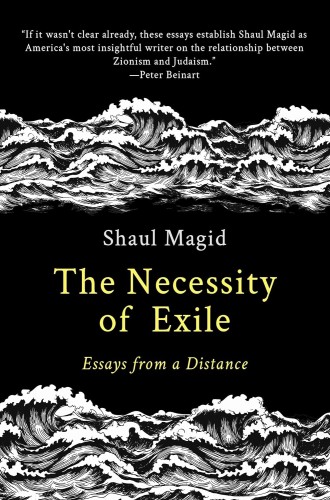
The Necessity of Exile
Essays from a Distance
The Necessity of Exile: Essays from a Distance
By Shaul Magid
Ayin Press
Leading Jewish studies scholar Shaul Magid writes succinctly about the conflict at the heart of imperiled liberal Zionism: How do you reconcile being “right on Israel, and left on everything else”? You can’t, he says, and as the state of Israel has become ever more “aggressive” and “chauvinistic,” he has had to come to terms with his own “counter-Zionism.” Magid builds on the work of Hannah Arendt, Judith Butler, Martin Buber, and others to explain why Zionism, however necessary it seemed to traumatized Jews after World War II, is now doing more harm than good. Magid thinks it’s time to stop trying to resolve the cognitive dissonance that inevitably arises from trying to uphold liberal values while supporting an increasingly right-wing nationalist state. (A Deadhead who came of age in the ’60s and ’70s counterculture, Magid compares this to seeing a Grateful Dead sticker on a Cadillac.) He insists that being a counter-Zionist doesn’t mean being anti-Israel, and he calls for a new ideological framework that embraces that exilic character of Jewish life. Magid’s essays are provocative and often idealistic, though he is certainly not naive. He anticipates those who would object to Israeli peace efforts with the oft-repeated phrase, “Palestinians are no partner for peace.” Magid, like Hartman, says this is immaterial to the moral imperative that Israel keep trying.
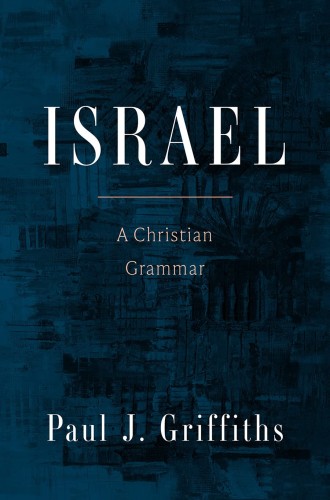
Israel
A Christian Grammar
Israel: A Christian Grammar
Paul J. Griffiths
Fortress
Paul Griffiths says that this book is not intended as an encyclopedia or a survey but a sketchbook from “a Christian theologian trying to think Israel through.” What he thinks is that Israel (as a theological concept, not a nation-state) is made up of both Christians and Jews, the church and the synagogue. If we share a lineage, worship the same God, and have the same purpose, then we should understand that we share a form of life, and that form is Israel.
More provocatively, he says Christians should assume that Jews, as God’s first beloved, are more intimate with God than we are, “held closer and more lovingly.” Since the church has “seriously and systematically damaged the Synagogue,” this should inform all of our interactions, which should be “penitential and sacrificially loving.” (In one of the three excurses at the end of the book, Griffiths says we should all be philosemites.) He issues an especially strong warning against the impulse Christians may have to proselytize Jews. In one of my favorite passages of this dense, exacting, and occasionally beautiful theological reflection, Griffiths writes that the church has “abrogated her standing to proselytize Jews, and has done so because of her sin,” having been as “an abusive spouse” with the synagogue the abused.






